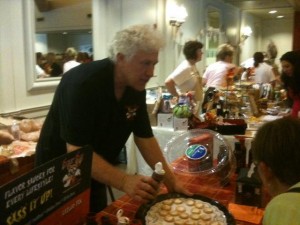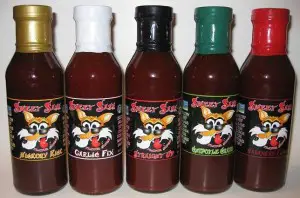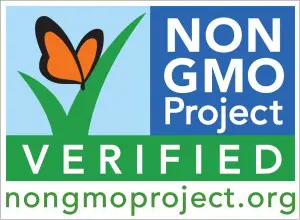After years of hard work, saving money, and perfecting his signature “flavor sauces,” Mike Campbell founded a company, Sweet Sass Foods, he could rely on for stable income for years to come while doing what he loved.
It all began in 2009 when recipes his family and friends enjoyed at backyard barbecues were turned into a product that could be bottled and sold.
Customers began to love his versatile sauces, which range from a hickory flavor to “Garlic Fix” to a sweet barbecue-style sauce called “Straight Up.” Mike and his family continued to use and enjoy the sauces on everything from baked beans and grilled chicken to veggie burgers, spinach salads and marinated portobello mushrooms. Business was looking up, and the bills were being paid off.
But soon after, the customers started to get a little restless. A shift was happening in the food production world, and Campbell’s Sweet Sass Foods brand was caught in the middle. Customers demanded better ingredients, and one of the top ingredients in his sauce, high fructose corn syrup, was public enemy number one.

Mike Campbell, founder of Sweet Sass foods, a non-GMO flavor and BBQ sauce. Photo courtesy of Sweet Sass Foods.
Campbell began fielding tons of questions about the ingredients, and he suddenly had a few decisions to make.
Listening to the Customers and Switching to GMO and HFCS-Free
Campbell, now 56, still lives in Livonia, Michigan, a quiet and fairly well-off suburb about eight miles outside of Detroit, where he started his business in 2009.
He and his wife Judy had always listened to customers’ feedback, but now they were encountering something completely unexpected.
“When we first came out with our product we were surprised with some of the concerns of HFCS, (since) it was in everything,” Campbell said.
“We thought, why are they picking on the little guy here?”
Seeking advice, he turned to his family.
“Our three sons very health conscious and into their workout routines, and they suggested the switch. Food choices have definitely changed from when I was their age. So we decided to change as well.”
Starting the transition in mid-2012, the company began to bottle its own product.
The corn syrup was definitely coming out, but Campbell’s son wanted to take it one step further.
“In the midst of this change, one of our sons mentioned his decision of eating Non-GMO (genetically modified organisms, which are highly controversial, unnatural food ingredients in most U.S. packaged foods) and introduced us to the Non-GMO Project. We researched and decided this is where we wanted to call home with our product, especially since our slogan is, ‘Flavor Sauces for Every Lifestyle,’ and we wanted to make sure everyone could enjoy them.”
According to Campbell, the changes to the original ingredients, testing and sampling processes were “very time consuming.” He had to wait for each ingredient supplier to submit paperwork verifying that their ingredients were GMO-free before moving forward.
“But we really wanted to listen to our customers and make the changes they were requesting, to be ahead of the curve and to provide healthier ingredients while still keeping the taste they loved” Campbell said.
The Non-GMO Verification Process Begins
Many people have wondered about what the Non-GMO verification process entails for food companies, and according to Campbell, it was handled very professionally.
“The Non-GMO Project team was great to work with. The process was defined, organized and precise,” he said.
The process began by reviewing each of the ingredients and their amounts in the Sweet Sass formula. Next, each ingredient was given a “risk rating” as to their potential for cross-contamination from GMOs, or being GMO in general. Campbell was advised to use cane sugar since he couldn’t use the mostly-GMO beet sugar, and the amount of honey in the formula was reduced to avoid possible risks. The formula now uses some honey, but only organic, and is mostly sweetened by cane sugar.
The business owner is then given a price for the non-GMO testing services and given the option of whether or not to proceed, which Campbell chose to do.
“I think it was a fair price because they’re doing all the evaluation and the homework, while I’m just getting paperwork from them and they’re telling me what to get,” he said.
Document requests led to a thorough review of pertinent information regarding Sweet Sass’ ingredient sources.
“Everything was submitted online to our own Non-GMO page,” Campbell said. “Responses and further requirements were given back and forth from manufacturing to us to the Non-GMO project. Overall, the process was very professional and rewarding. We were very excited when we received our verification!”
The Non-GMO Verification Project’s official butterfly-themed logo, signifying the protection of nature and natural ingredients, now adorns every Sweet Sass bottle, and the company is expanding into several new stores including health food stores (and Whole Foods, potentially) while also selling on their website. The company also has a Facebook page, which can be found here, and has received support from non-GMO advocates.
Adding new flavors including Chipotle Craze and Habanero Flare, which add a little more “heat” to the mix, has also helped the company since its switch to non-GMO. His product is also in more health-focused stores than before, along with grocery stores.
While some food company owners are still reluctant to switch to non-GMO for fears of costs and other factors, Campbell and his customers have been enjoying the change so far, he said, for many different reasons.
“Changing to non-GMO really didn’t influence the cost of the product, it all balanced out in the end,” he said.
“And overall the response from customers has been great…the taste has improved and they have accepted our changes. Our product really is a better product in all ways now and we’re really glad it worked out.”

Sweet Sass Flavor Sauces are now Non-GMO Project Verified after making changes that consumers had requested.
Thanks for installing the Bottom of every post plugin by Corey Salzano. Contact me if you need custom WordPress plugins or website design.





